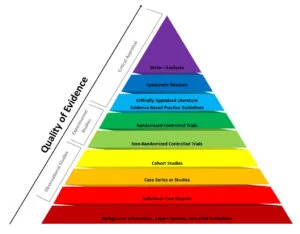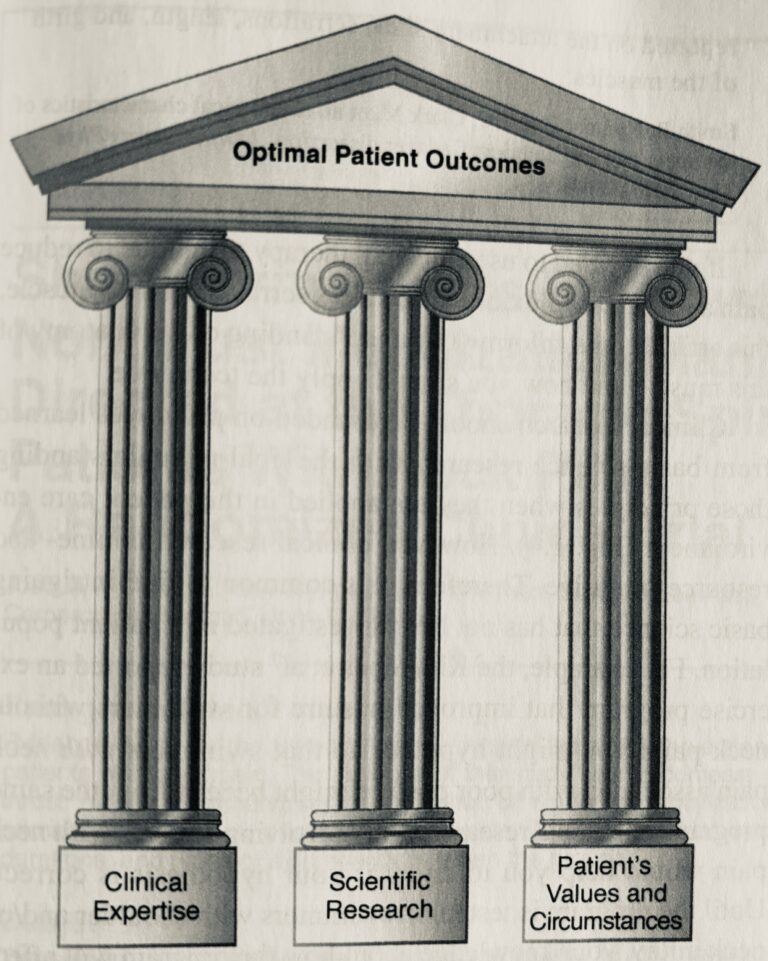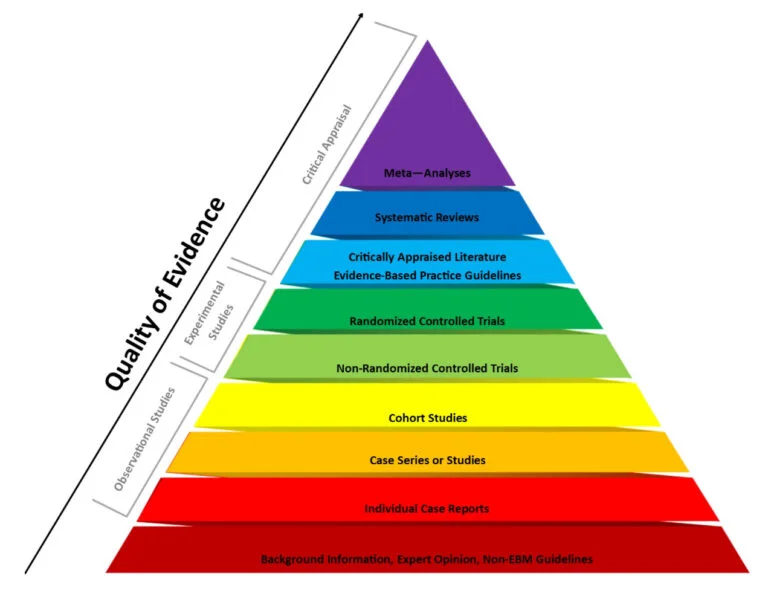Whether you’re a physical therapist, Pilates or yoga teacher, personal trainer, or just interested in health and fitness, you’ve come across the term “evidence based practice.” There are a few conflicting ideas about what constitutes as evidence, and further, how much evidence do you need to use to claim that you’re evidence based?
In this post, we’ll review:
- What is meant by an evidence based practice?
- How does that kind of evidence relate to clinical and anecdotal evidence?
- Can any practice really claim to be evidence based and still respond to client needs?
We’ve gathered a number of scientific articles for your own research! Check out Yoga Research Articles: Read New Findings! and Pilates Anatomy Resources.
What goes into an Evidence Based Practice?
Evidence Based Practice (EBP) is a methodical approach to management that integrates three key components:
- Clinical Expertise: The skills and experience of healthcare professionals.
- Best Available Evidence: The most current and comprehensive research findings and clinical guidelines.
- Patient Values and Preferences: The individual preferences, concerns, and expectations of the patient.
EBP seeks to provide the highest quality of care by combining these elements to make informed decisions about patient treatment and care.
That’s the strict definition of evidence based practice. The reality is that it has become a buzzword now, and it seems to mean “I do some exercises that are backed by some scientific studies.” While we’ll see below, what counts as evidence is one issue, but another is what we mean by based.

Does “based” mean:
- you only recommend exercises and prescriptions with a very high degree of scientific support
- you definitely include these exercises and protocols, but also incorporate those based on clinical or anecdotal evidence or even intuition
- you employ scientific method in your clinical practice
So while it seems that evidence based practice is a clear term promising scientific neatness, uses of the term are not uniform.
Who Uses Evidence Based Practices?
Evidence Based Practice is predominantly applied in the healthcare industry. It is used by professionals ranging from doctors and nurses to therapists and other clinical staff.
By employing EBP, healthcare providers ensure that the treatments and interventions they offer are supported by the latest research and tailored to the specific needs of their patients.
Many fitness instructors draw from EBP, although limiting themselves to exercises which are evidence based, in the strict sense, is not common.
5 Benefits of Evidence Based Practice
There are a number of benefits to having an evidence based practice. Here are our top 5:
- Improved Client/Patient Outcomes: By utilizing the most effective treatments, EBP enhances the quality of care and leads to better health outcomes for patients.
- Cost-Effective Care: EBP helps reduce healthcare expenses by eliminating ineffective treatments and ensuring efficient use of resources.
- Quality Enhancement: Integrating evidence with clinical expertise and patient values leads to more personalized and high-quality care.
- Informed Decision-Making: Healthcare providers are better equipped to make decisions that improve patient safety and satisfaction.
- Continual Learning and Improvement: EBP fosters a culture of learning by encouraging healthcare professionals to stay updated with the latest research, thereby promoting ongoing improvement in practice standards.
In summary, Evidence Based Practice is an essential component of modern healthcare that ensures decisions are well-informed, grounded in solid research, and centered around the patient’s needs.
Sources
Titler, Marita G. “The evidence for evidence-based practice implementation.” Patient safety and quality: An evidence-based handbook for nurses (2008).





